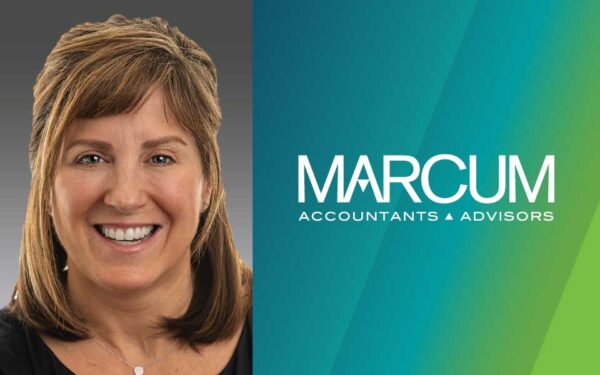ESOPs and The Proposed Regulations for Adequate Consideration in ESOP Transactions
By Patrice Radogna, Partner, Advisory Services
Employee Stock Ownership Plans (ESOPs) have long been celebrated as a powerful mechanism for employee empowerment and wealth creation. These plans allow workers to become part-owners of their company, aligning interests and potentially leading to improved productivity and job satisfaction. However, the regulatory environment surrounding ESOPs is complex and has recently been intensely scrutinized. In 2022, the ESOP Association, representing the interests of ESOP companies and ESOP trade organizations, took a proactive stance by petitioning Congress on formalizing proposed regulations regarding “adequate consideration.”
Background on ESOPs and Adequate Consideration
At the heart of ESOPs is the concept of “adequate consideration.” When a company establishes an ESOP, it must ensure that the price paid for its stock is fair to the plan participants. The Department of Labor (DOL) is tasked with safeguarding the interests of these participants. It has established guidelines to prevent the overvaluation of company stock, which could harm employees’ retirement savings.
As with all qualified employee benefit plans, ESOPs are governed by the Employee Retirement Income Security Act (ERISA). Congress designed ERISA to allow ESOPs to buy employer stock using funds borrowed from the ESOP’s sponsoring company itself – employees almost never contribute any of their own funds for an ESOP’s acquisition – so long as the ESOP pays no more than “adequate consideration.” Virtually all ESOPs are established via this legal standard, known as the “Adequate Consideration Exemption.”
When ERISA was passed in 1974, Congress directed the DOL to issue regulations outlining more specifically how parties to ESOP transactions could satisfy the Adequate Consideration Exemption. The DOL has long recognized that such a regulation is crucial to eliminate confusion surrounding the vaguely written standard and protect ESOPs and their participants from potential abuse. In 1988, the DOL issued proposed regulations (29 CFR 2510.3-18(b) aimed at further defining “adequate consideration.”
The Challenge
Various stakeholders, including the ESOP Association, the NCEO and the American Society of Appraisers, have expressed concerns over proposed regulations on what constitutes adequate consideration. These regulations aim to refine how valuation processes are conducted, providing more clarity around standards and key methodologies (as well as guidance on hotly debated/litigated valuation and fiduciary issues). While the intention is to protect ESOP participants, overly stringent regulations may hinder the formation and operation of ESOPs, thereby limiting their availability as a tool for employee ownership.
The Petition to Formalize Regulations Regarding Adequate Consideration
In September 2022, the ESOP Association petitioned the DOL to undertake a long-delayed rulemaking, essential to forming new ESOPs. To issue a regulation, the DOL would need to engage with interested stakeholders in a mandatory notice and comment rulemaking process. Unfortunately, until 2023, the DOL has ignored Congress’s directive and circumvented this requirement using a procedurally improper tactic of “regulation by litigation.”
Issues with Regulation by Litigation
In a recent example of DOL’s abusive litigatory tactics, it investigated and alleged that the selling shareholders of Bowers + Kubota Consulting, Inc. (“B+K”), an architectural and engineering firm based in Hawaii, were paid more than fair market value by the B+K ESOP, in breach of the Adequate Consideration Exemption regulation. After a prolonged and costly court battle with the DOL, the founders of B+K prevailed on every argument advanced by the DOL in federal court. In fact, the federal judge presiding over the bench trial resoundingly struck down each of the government’s arguments and ruled that the defendants “did not violate any provision of ERISA with respect to the sale of the Company to the Company’s ESOP.”
Ken Pia of Marcum, the key financial expert on the defense team, eloquently dissected the false allegations and dismantled the DOL’s arguments that doubled down in their efforts to prove various breaches by the Trustee of the ESOP and B+K’s founders in federal court. Pia’s arguments aided the judge in her decision on all key ERISA issues, leading to a decision in favor of the defendants on all allegations of breach of fiduciary duty.
The B+K decision affirmed the correct interpretation of adequate consideration, but this ruling does not go far enough or provide a solution for future transactions. Fleshing out the definition of the Adequate Consideration Exemption as part of a legislative act would create a uniform, transparent standard governing the process by which parties to ESOP transactions can establish a company’s fair market value, which is crucial to ensure that ESOPs do not overpay for employer stock.
Progress – The Voices of Stakeholders are Heard
In a major victory for ESOPs, in April 2023, the DOL agreed to hold a public notice and comment rulemaking. In fall 2023, a public hearing was held that allowed key stakeholders to discuss the regulation and provided the opportunity for such constituents to communicate the need for the DOL to issue final regulations on Adequate Consideration under Section 408(e) of the Employee Retirement Income Security Act of 1974 (ERISA) wherein feedback was provided to the DOL.
The Goal of Stakeholders
The goal of stakeholders with final regulations is to seek a balanced approach that ensures fair valuations without stifling ESOPs. The ESOP community argues that the current form of proposed regulations, together with the existing loose guidance (as opposed to passed legislation), will continue to result in increased costs and liabilities for ESOP companies. The lack of enacted legislation discourages some solid ESOP candidates from adopting an ESOP and selling companies to their employees. The ESOP community is calling for clear and practical regulations that support the continued success of ESOPs.
Expected Key Points of the Regulation
The key points expected in the proposed regulations are items such as the clarity of duties of the Trustee in an ESOP transaction, the interpretation of fair market value (including clarifications related to valuation methods and elements impacting fair market value) and generally, reasonable compliance standards to ensure that the ESOP’s purchase of company shares qualifies as an exempt transaction in an ESOP Transaction (by meeting all elements of the Adequate Consideration concept).
The Advocacy Efforts
Advocacy efforts by the ESOP community extend beyond the current efforts. Many stakeholders are engaging with lawmakers, regulatory bodies, and other stakeholders to convey the critical role ESOPs play in the economy. Marcum is proud to be involved on various fronts in the advocacy efforts. Patrice Radogna and Ken Pia are working collaboratively with the Department of Labor, both with and on behalf of the ESOP Association to assist in drafting the final regulations.
Conclusion
The debate over adequate consideration in ESOPs is a pivotal one with significant implications for the future of employee ownership. The ESOP Association’s initial petition to Congress represented a crucial step in ensuring that these plans remain a viable and beneficial option for both employees and employers. As the conversation is unfolding, it is essential for all parties to collaborate in fostering an environment where ESOPs can thrive, continuing to serve as a cornerstone of inclusive capitalism.

















